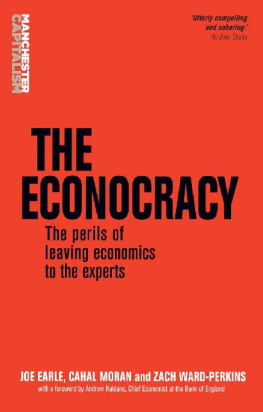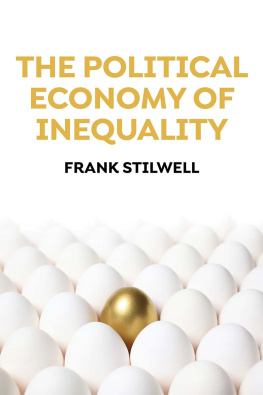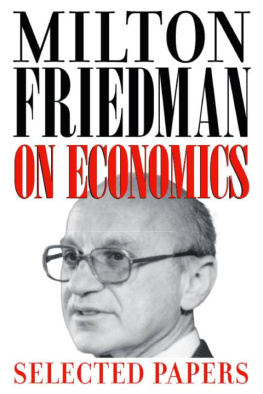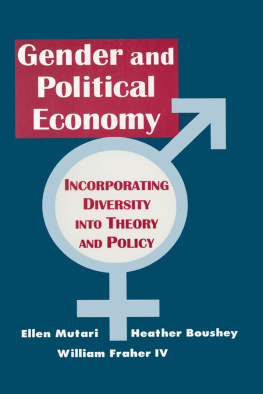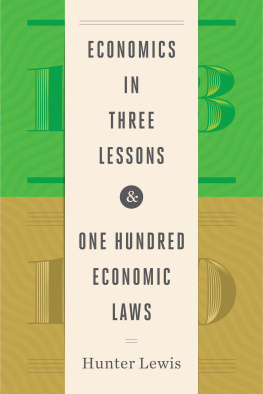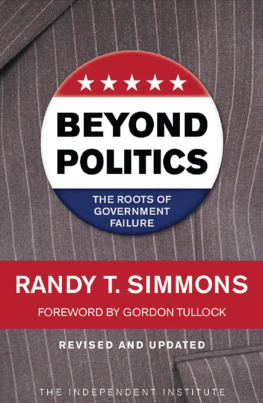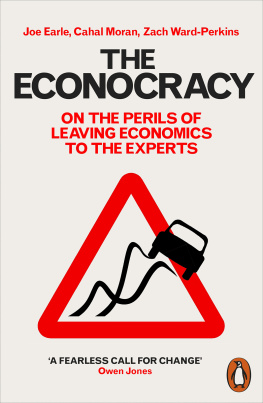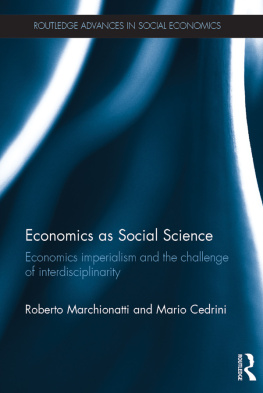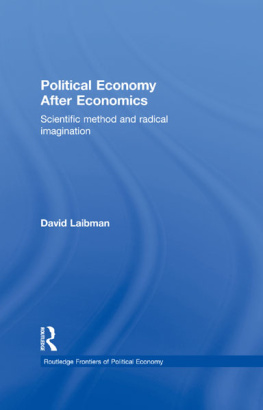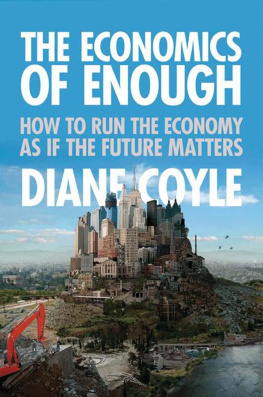The econocracy
TheManchester Capitalismbook series
General Editor
MICK MORAN
Manchester Capitalism is a series of short, accessible books that reframe the big issues of economic renewal, financial reform and political mobilisation in present-day capitalism. The books do so by directly tackling major policy issues and the assumptions that underpin the policy agenda of an unlearning state. The aim is to contribute towards the reframing of political choices that is necessary before we can ensure security in a responsible capitalism.
The first three books in the series cover the policy bias towards competition and markets, the British states persistence with outsourcing and the development of public private partnership as an export product for the global south. Altogether these books make the argument that post-1979 structural reform promised the market and delivered an extractive, financialised capitalism that benefits elites while ordinary citizens suffer growing problems about the supply of foundational goods and services necessary to everyday welfare.
In parallel, the researchers at the Centre for Research on Socio Cultural Change have produced a series of public interest reports on mundane sectors which are freely downloadable from their website at cresc.ac.uk. These reports cover meat supply, railways, textiles and apparel and adult care. The Manchester Capitalism website gives an overview of the latest activity by the interdisciplinary team of researchers who have authored these books and reports.
The Manchester Capitalism title reflects our conviction that there is much distributed intelligence in our economy and society outside the metropolitan centres of elite decision making. We write to inform and empower that force which Victorian Britain recognised as agenda-setting, provincial radicalism and which we can promote in the twenty-first century through an informed citizenry. As The econocracy argues, citizens need knowledge and cannot delegate decisions to experts.
Previous titles:
Licensed larceny: Infrastructure, financial extraction and the Global South Nicholas Hildyard
The end of the experiment? Bowman et al.
What a waste: Outsourcing and how it goes wrong Bowman et al.
Praise forThe econocracy
Economics has become the organising principle, the reigning ideology, and even the new religion of our time. And this body of knowledge is controlled by a selective priesthood trained in a very particular type of economics that is, neoclassical economics. In this penetrating analysis, based on very sophisticated theoretical reflections and highly original empirical work, the authors show how the rule by this priesthood and its disciples is strangling our economies and societies and how we can change this situation. It is a damning indictment for the economics profession that it has taken young people barely out of university to provide this analysis. Utterly compelling and sobering.
Ha-Joon Chang, Reader in Political Economy of Development at the University of Cambridge and author ofEconomics: The Users Guide
A rousing wake-up call to the economics profession to re-think its mission in society, from a collective of dissident graduate students. Their double argument is that the econocracy of economists and economic institutions which has taken charge of our future is not fit for purpose, and, in any case, it contradicts the idea of democratic control. So the problem has to be tackled at both ends: creating a different kind of economics, and restoring the accountability of the experts to the citizens. The huge nature of the challenge does not daunt this enterprising group, whose technically assured, wellargued, and informative book must be read as a manifesto of what they hope will grow into a new social reform movement.
Lord Robert Skidelsky, Professor Emeritus of Political Economy at Warwick University and Fellow of the British Academy in History and Economics
If war is too important to be left to the generals, so is the economy too important to be left to narrowly trained economists. Yet, as this book shows, such economists are precisely what we are getting from our leading universities. Given the role economists play in our society, we need them to be much more than adepts in manipulating equations based on unrealistic assumptions. This book demonstrates just why that matters and offers thought-provoking ideas on how to go about it.
Martin Wolf, Associate Editor and Chief Economics Commentator at theFinancial Times
An interesting and highly pertinent book.
Noam Chomsky
Economics, as practised in university economics departments, regurgitated by policy makers, and summarised in the mainstream media, has become a form of propaganda. This superb book explains how dangerous ideology is hidden inside a mathematical wrapper; controversial policies are presented as proven by the models of economic science. This book is essential reading for anyone who wants to know about the con that includes everyone concerned with the future of democracy.
Jonathan Aldred, Director of Studies in Economics at Emmanuel College, Cambridge and author ofThe Sceptical Economist
The econocracy explains, supported by excellent research, how one branch of economics has captured the academy and excluded the public from debate about how the economy is organised, leaving this branch almost the only source of policy advice. It is written by British members of Rethinking Economics, the international organisation of students and recent graduates dissatisfied with their curriculum. They have produced a work of high quality and national importance. Read this book.
Victoria Chick, economist and founder of the Post Keynesian Economics Study Group
This book is for the many students who want to study economics because they want to help society solve its problems: a critical introduction to contemporary economics, written by a new, post-2008 generation of economists. Aspiring economists will need to read this book early, in time to protect themselves from indoctrination into a neoclassical economics firmly associated with an economistic political-ideological worldview. To understand the real world, and not just what standard economics calls the economy, future economists must learn to see through and escape from a conceptual construction destined to replace democracy with econocracy, turning government over to a publicly unaccountable technocratic elite. There is no better vaccination against the economistic disease than this immensely readable book.
Wolfgang Streeck, Emeritus Director at the Max Planck Institute for the Study of Societies and author ofBuying Time: The Delayed Crisis of Democratic Capitalism
The economics profession has failed disastrously in recent decades, first by failing to warn of the dangers of a bloated and poorly regulated financial sector and then through an obsession with mathematically refined, but practically useless, modelling exercises. Yet neither the confidence with which economists make pronouncements about the economy, nor the way in which economics is taught in universities has undergone any significant change. This book addresses these questions with a call for an economics addressed to citizens and a pluralist approach to economics education. It should be read not only by those seeking to understand how policies driven by the alleged needs of the economy have failed, but also by economists who want to understand why their pronouncements are increasingly regarded with distrust and disdain.
John Quiggin, Australian Laureate Fellow in Economics at the University of Queensland
In this challenging new book, Joe Earle, Cahal Moran and Zach Ward-Perkins argue, not against expertise as such, but in favour of a new kind of economic expert: one who is better able to engage both with real problems and with economic citizens. As befits members of the international economics student movement Rethinking Economics, they set out an agenda for improved education of economics students, but also of economic citizens. Their arguments are backed up by new evidence of the current situation for economics students as well as by historical analysis of the discipline. The book itself is an exemplar of the kind of expertise they advocate, being problem-oriented and accessible to a wide audience, and drawing on careful informed argument. The book should be required reading for anyone concerned about the future of economics.
Next page
